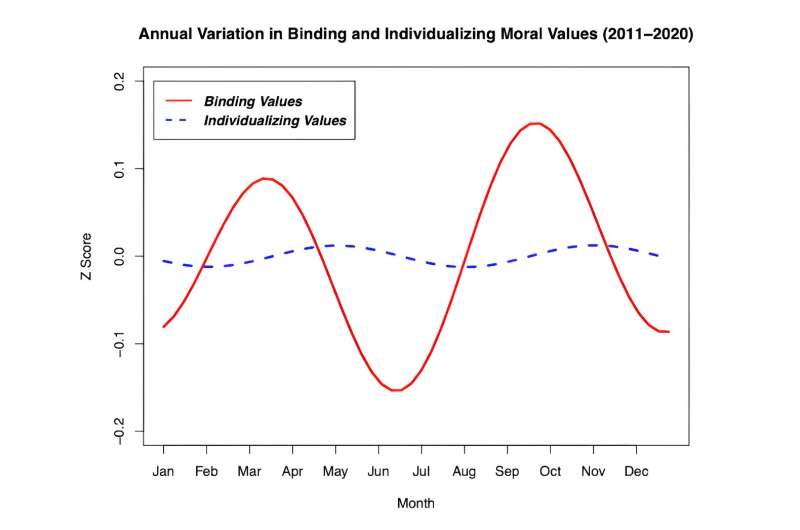Research reveals that our moral values can fluctuate with the changing seasons, with people endorsing “binding” values like loyalty, authority, and tradition more strongly in spring and autumn. This phenomenon may be linked to seasonal changes in anxiety and perceived threat levels. The findings have implications for understanding group dynamics, prejudices, legal decisions, and even election outcomes. Moral values and seasonal changes are both complex topics worth exploring further.

The Malleable Nature of Moral Compass
Moral values are not as set in stone as we might think. Researchers have discovered that these guiding principles can shift depending on the specific thoughts, feelings, and motivations that arise in different situations. And now, it appears that the seasons themselves can influence the moral values that people endorse.
The study, published in the Proceedings of the National Academy of Sciences, examined the self-reported moral values of over 230,000 Americans over the course of a decade. The results revealed a clear, consistent seasonal cycle in the endorsement of “binding” moral values, which include loyalty to one’s group, respect for authority, and maintaining traditional practices. These values were most strongly endorsed in the spring and autumn, and least strongly in midsummer and midwinter.
Uncovering the Link Between Seasons and Anxiety
The researchers propose that this seasonal pattern in binding moral values may be linked to changes in perceived threat levels, as previous studies have associated the prioritization of binding values with a heightened sense of threat. To test this idea, the researchers analyzed data on Americans’ self-reported anxiety levels and Google searches for anxiety-related terms, and found that these also exhibited a bimodal seasonal cycle, mirroring the pattern observed for binding moral values.
Furthermore, the researchers found that the summertime dip in binding moral values was more pronounced in areas with more extreme seasonal temperature changes, suggesting that pleasant weather may play a role in reducing anxiety and, in turn, the endorsement of binding values.
Implications for Group Dynamics, Prejudices, and Beyond
The implications of these findings are far-reaching. Binding moral values promote cohesion and cooperation within groups, which can be beneficial in times of crisis. However, they also foster distrust of those who fail to adhere to group norms and traditions, potentially leading to increased prejudices against immigrants, racial minorities, LGBTQ+ individuals, and other perceived outsiders.
Moreover, the link between binding moral values and more punitive attitudes could have seasonal effects on legal decision-making, with potential implications for the millions of court cases that occur each year. And given the connection between binding moral values and conservative political leanings, the timing of elections could even influence voting patterns and, in close races, potentially sway the outcome.
